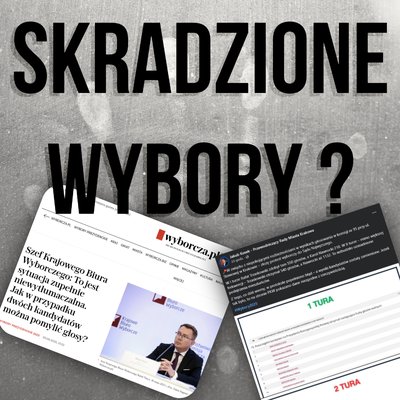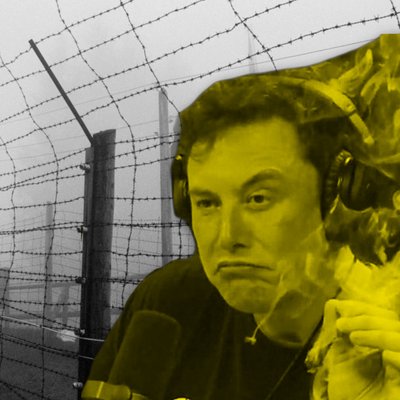Rhetorical fallacies in activist narratives: The Case of Greta Thunberg (COP29)
Maciej Lesiak
- 6 minutes read - 1137 words
Ten artykuł jest dostępny również po polsku:
Błędy erystyczne narracji aktywistów na przykładzie Grety Thunberg (COP29)
What's in this article
Did the UN Organize a Festival of Hypocrisy?
In Azerbaijan, a country infamous for its issues with democracy, freedom of speech, and the persecution of opposition, COP29—the 2024 United Nations Climate Change Conference—is taking place. Here, the global elite is discussing financing climate actions, reducing greenhouse gas emissions, and adapting to extreme weather phenomena. The problem is that neither Joe Biden nor Ursula von der Leyen attended the summit in Baku, while Donald Trump has already declared that he will cut “all leftist nonsense” and stop wasting money on pseudo-ecological problems. For the nation with the world’s largest economy, climate change is simply a hoax. (read more in Project 2025: How Trump and MAGA may reshape American climate policy)
Hypocrisy at COP29 in Azerbaijan: Greta Thunberg Strongly Criticizes the Hosts
I came across an interesting piece by Greta Thunberg commenting on COP29, published in The Guardian. In my opinion, Greta Thunberg’s article serves as an excellent case study for analyzing rhetorical fallacies often employed by activists. The paradox is that Greta is 100% correct in calling COP29 a festival of hypocrisy. Azerbaijan, a country that tortures political dissidents and is a caricature of democracy, is indeed an inappropriate location for a climate summit—unless these values are meant to be the hallmark of a world battered by climate catastrophe.
Putting the jokes aside for a moment… Greta rightly points out the human rights issues and exposes the hypocrisy of the whole enterprise, showing the establishment’s inherent deceit. The problem is that her ideal reader is exclusively radical activists, as becomes apparent from the opening paragraphs.
Rhetorical Elements in Greta’s Message
Let’s look at her words:
“Genocides, ecocides, famines, wars, colonialism, rising inequalities and an escalating climate collapse are all interconnected crises that reinforce each other and lead to unimaginable suffering.” While humanitarian crises are unfolding in Palestine, Yemen, Afghanistan, Sudan, Congo, Kurdistan, Lebanon, Balochistan, Ukraine, Nagorno-Karabakh/Artsakh, and many, many other places, humanity is also breaching the 1.5C greenhouse gas emissions limit, with no signs of real reductions in sight.
Here, we arrive at the fundamental rhetorical fallacies and the construction of the model reader—her ideal reader is a radical activist from her own “bubble,” and this tone is set right from the first paragraphs. Instead of using an influential platform like The Guardian to calmly expose hypocrisy and reach a broader audience, Greta speaks as if she were at a rally.
Greta uses intense, even dramatic phrases like “genocides, ecocides, famines, wars, colonialism, rising inequalities.” Such words are akin to accusations. She combines these elements to evoke strong emotions in the reader. This is a classic, although somewhat predictable, rhetorical technique meant to evoke guilt, fear, and empathy. The problem is that such an overwhelming dose of negativity can lead to defensive reactions instead of motivating action. The opening paragraphs are filled with radical rhetoric, and I fear that many readers might not continue to the later, more substantive parts of the article.
The Model Reader—A Radical Activist
Greta’s article is directed primarily at those who already share her radical views on climate and human rights. From my experience, this form of communication is a recurring mistake in activism.
The choice of words and the intensity of the message indicate that her intended audience is someone deeply engaged in the subject, who is already familiar with all the examples she cites. If you want to learn more about the echo chamber problem and the traps of activism, I wrote about this in Activism in the Shadow of Cognitive Biases and Confirmation Bias. Greta does not attempt to persuade those who are undecided or might have a moderate view of climate change; instead, she reinforces the views of those already convinced. Will this strategy be effective? It’s a good way to mobilize your own group, but it has little potential to reach less radical audiences.
Why Greta’s Message May Not Resonate with Most Audiences
Let’s be honest—most of the so-called first world doesn’t care much about the problems in Ukraine, Yemen, or Palestine. People are more preoccupied with their water bills, the launch of the new iPhone, and planning vacations. Sometimes, when I think about the climate crisis, I wonder if people are more afraid of disappearing species and climate-related disasters or of not being able to afford vacations at Instagram-famous destinations, or maintaining their children’s standard of living. After all, a comfortable life and enjoying the perks of consumerism are important to them. Therefore, I argue that the average reader will reject a message framed in this way.
Flaws in The Guardian’s Media Strategy
Interestingly, I also wonder whether The Guardian itself isn’t making a mistake by using Thunberg as a vehicle to extend the reach of such information—on an issue of global importance. If you wrap the message in radicalism and rhetorical fallacies (as I explained above), it will be perceived differently than intended. Radical activists are already familiar with this information, so why design an article solely for them? Such commentary on The Guardian’s platform becomes an easy target for those who mock and dismiss the issue of climate change.
A fundamental mistake that scientists dealing with climate are increasingly pointing out is that the more alarmist the message, the less likely people are to react, which leads to rejection of the information. Marketers understand this well, but activists seem unwilling to accept this basic truth. When a situation is portrayed as catastrophic, people react with paralysis and apathy rather than action. Will we face a similar form of “bankruptcy”?
Burning Out and Building a Misguided Narrative
In my opinion, what I’ve discussed today reflects a fundamental flaw in the art of argumentation, which I see in many activists. Instead of delivering fiery speeches appealing to a radical niche, we should focus on changing awareness and informing a broader audience, considering rhetorical principles and appropriately building the model reader. This could serve as a starting point for education and putting forth real demands. Will such an approach “sell”? Or are we headed for an exalted downfall, with activists shouting triumphantly, “Didn’t I tell you?!!!”
Greta herself is becoming increasingly inconvenient for the Western world. She had the courage to speak out on difficult issues, but she is now being increasingly criticized for her broad approach to activism. However, the subject of this entry was not Greta herself, but her language and statements in the context of COP29.
My Qualifications: As a philosophy graduate of the University of Wrocław/University of Łódź, I attended a year-long seminar on rhetoric, a year on manipulation, and additionally took seminars based on the semiology of Umberto Eco, where we worked on interpretations, over-interpretations, and building the model reader.
Full Article Text
Read the full text here in English: A ‘Cop of peace’? How can authoritarian, human rights-trashing Azerbaijan possibly host that?
Related
- Conspiracy Theories as Civic Narrative: An Analysis of Rafał Górski's Columns from the Civic Affairs Institute
- The Final Solution to the Wolf Question vs Palestinians - The Hierarchy of Climate Activist's Sensitivities
- The Traps of Activism: Last Generation's Escalation Ladder Part 1
- Bitter Reflections: The Golden Cage of Activism
- The Activism Trap: A Critical Analysis of Social Media Federalization Interpellation
- Activism in the Shadow of Cognitive Biases and Confirmation Bias
- Stolen Election Theory: Progressive Media Trapped by Confirmation Bias
- Chicken Conspiracy: Conspiracy Theories about the Destruction of Polish Poultry Farming
Amplify the Signal

Best support is sharing articles and tagging dadalo.pl on social media. You can also support financially - this covers media access and press archives needed for research.
Shares are more important than donations. Financial support helps maintain research independence.





